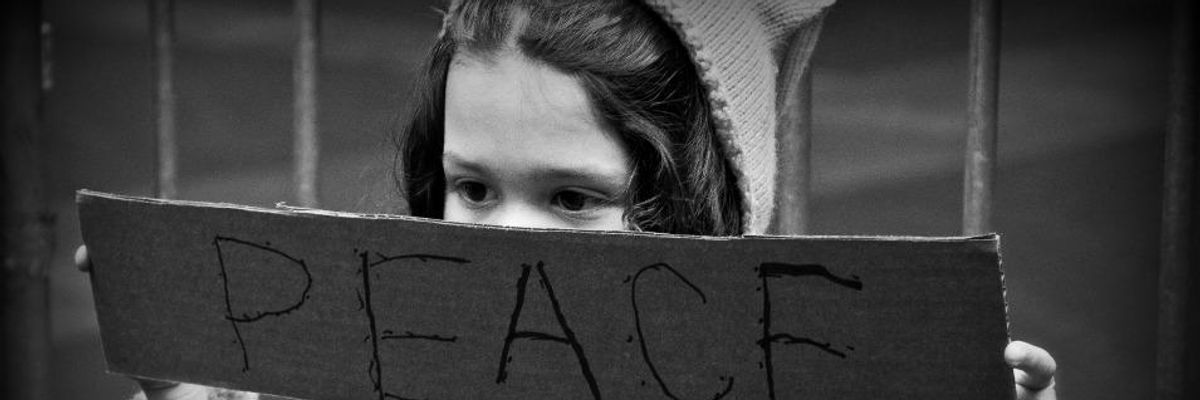Often enough when something goes missing, it takes a while to realize that it's gone. An example that came to me recently is the once-commonplace word "peace." It's not just that, in a time of public dissatisfaction with America's wars, there's no mention of a "peace movement" or "peace signs," but that in wartime Washington, when it comes to the world rather than the domestic realm, the very idea of "peace" has gone missing in action.
Once upon a time, even in the midst of war, politicians still talked of peace--of a future, that is, in which whatever war was underway had ended and some other way of existence was imaginable. But it turns out that there was a prerequisite for that: you had to believe that one day the state of war would indeed be over, that someone would win or "peace negotiations" would begin.
These days in Washington that turns out to be unimaginable. Think of it as part of a post-9/11 sea change. It didn't take long after the World Trade Center and the Pentagon were attacked for the top officials of the Bush administration (and their neocon cronies) to begin imagining a "wartime" that would never end. "World War IV" or "the Long War," as they liked to call it, had begun. In fact, they road-tested a number of names meant to catch the spirit of the moment as they imagined it, though the only one that stuck was "the Global War on Terror."
From the beginning, it was seen as a multi-generational struggle stretching off into the fog of time. In that light, the national security state was massively built up to offer Americans eternal safety from "terror" in a world in which danger would never be more than a hijacked plane away. That structure has now reached monumental proportions, becoming embedded in Washington and in "the homeland" in a way that's undoubtedly beyond dislodging in any foreseeable future.
It's a structure built on a permanent-state-of-war mentality, and its agents clearly believe that its maintenance requires the American people to be regularly inoculated with doses of fear. The most recent of these came from the FBI and the Department of Homeland Security: a warning to military families to "scrub their social media accounts due to a growing threat from ISIS terrorists." All this lest some "lone wolf" Internet recruit of the Islamic State has the urge to attack members of the military or their relations here in the U.S. Once upon a time, Americans wouldn't have given in to this sort of fearmongering, but no longer.
When the idea that our state of war can never end, that fear is the essence of the American way of life and "safety" its only goal, lodges this deeply, "peace"--that is, a state beyond wartime--becomes ever less conceivable. As a result, the word loses its utility and goes MIA, as seems largely to have happened in present-day Washington, if not across the country. In such moments, we need to be reminded that war is not the only imaginable state for humanity. Fortunately, Adam Hochschild, author most recently of To End All Wars, an eloquent and original history of World War I and those who resisted it, does just that in "Why No One Remembers the Peacemakers." In a country in which war has failed dismally to advance national policy for 13 years and in which no official in Washington is allowed to give that obvious reality any thought at all, pieces like today's Hochschild post and Rory Fanning's "Why Do We Keep Thanking the Troops" are increasingly necessary simply to keep the idea of opposition to American-style war and a penchant for peace alive in this country.

